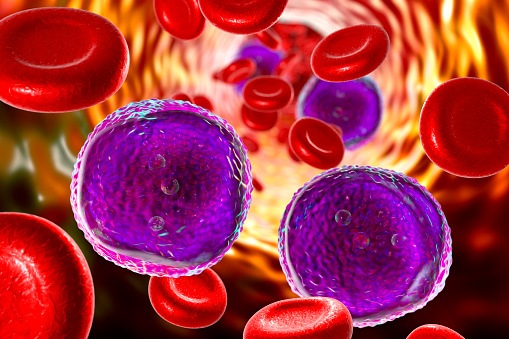
The recently FDA-approved ruxolitnib should be utilized more in the treatment of chronic steroid-refractory graft-versus-host disease (SR cGVHD) due its robust efficacy and favorable safety profile, according to a study presented at the 2022 American Society of Clinical Oncology (ASCO) Annual Meeting.
In this comprehensive literature search, researchers queried databases such as PubMed, Cochrane, and Embase to conduct analysis.
The assessment focused on three studies: two retrospective cohort studies, and one pilot prospective study, both centered on evaluated ruxolitinib in SR cGVHD.
In one retrospective cohort study, conducted by Yang et al., 36 patients with SR cGVHD underwent ruxolitinib treatment, and ~28% demonstrated complete response (CR) with complete disappearance of cGVHD symptoms. Partial response (PR) with symptom relief was achieved in over 52% of patients at a dose of 2.5 to 10 mg two times daily with ruxolitinib tapering one week after symptoms alleviation.
According to the pilot prospective study conducted by Mozo et al., in 12 pediatric patients with SR cGVHD treated with ruxolitinib at a dose of 2.5 to 10 mg two times daily, 8.3% of patients achieved a CR, and importantly, over 82% of patients achieved at least a PR. In another prospective pilot study, conducted by Morozova et al., in 20 patients with primary or secondary myelofibrosis who were treated with pre-transplant ruxolitinib, PR was seen in 47.1% of patients at six months with an incidence of cGVHD of 20%. Finally, in a phase III trial conducted by Zeiser et al., the researchers observed a CR of 6.7% and PR of 43% in 165 patients treated with ruxolitinib.
“Ruxolitinib was recently approved by FDA for the treatment of SR GVHD and should be utilized more due to its high effectiveness and tolerable safety profile,” the researchers concluded.







 © 2025 Mashup Media, LLC, a Formedics Property. All Rights Reserved.
© 2025 Mashup Media, LLC, a Formedics Property. All Rights Reserved.